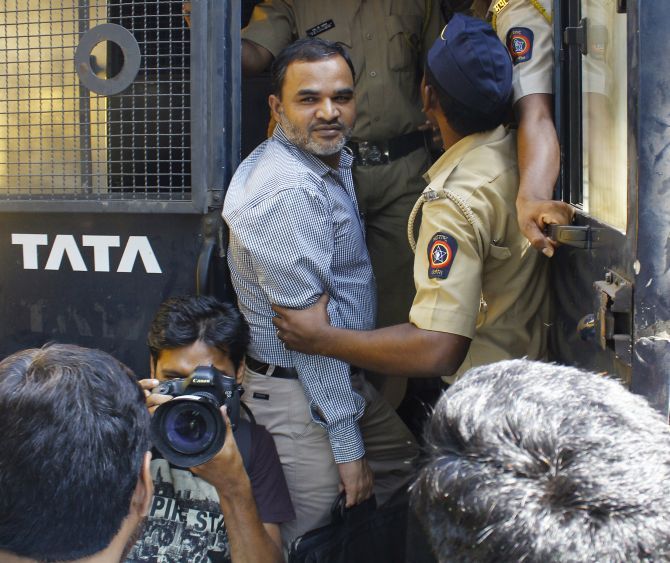From arranging logistics for carrying out the July 11, 2006 train bombings to conducting recce of suburban trains, the convicts had the task cut out for them in precision, as per the chargesheet filed by Anti-Terrorism Squad.
Nine years after the seven RDX bombs ripped through many western line local trains, killing 189 people and injuring over 800. Special Judge Yatin D Shinde on Wednesday pronounced capital punishment for Kamal Ahamed Ansari, 37, Mohammed Faisal Shaikh, 36, Ehtesham Siddiqui, 30, Naveed Hussain Khan, 30, and Asif Khan, 38, all of them said to have planted the bombs.
The remaining seven, who were given life imprisonment, are Tanvir Ahmed Ansari, 37, Mohammad Majid Shafi, 32, Shaikh Alam Shaikh, 41, Mohd Sajid Ansari, 34, Muzzammil Shaikh, 27, Soheil Mehmood Shaikh, 43, and Zamir Ahmad Shaikh, 36.
As per the chargesheet filed in 2006, here is what they did:

1) Kamal Ansari
According to the chargesheet, he transported Pakistani nationals to Mumbai via Nepal border. He procured explosives, also attended training in Pakistan and planted a bomb in a local train, which exploded at Matunga railway station.
2) Mohd Faisal Shaikh
The ATS said that he not only went to Pakistan twice for training, but had also sent youths to that country for training purposes. He had also attended conspiracy meetings besides giving shelter to Pakistani nationals.
Shaikh received money through hawala route. He also planted a bomb in a suburban train, which exploded at Jogeshwari.
3) Ehtesham Kutubuddin Siddiqui
He was the joint secretary of the banned Students Islamic Movement of India for Maharashtra at the time of the bombings.
Besides attending conspiracy meetings, Siddiqui also conducted recce of local trains. He was also present when bombs were made and planted an explosive in a local train, which exploded at Mira Road station.
4) Naveed Hussain Khan
He attended conspiracy meetings and planted a bomb, which exploded at Khar station.
5) Asif Khan
The chargesheet said that Asif Khan had procured explosive material and planted a bomb, which exploded at Borivali station.
Role played by those who were awarded life sentences:
6) Muzammil Shaikh
According to the ATS, he attended conspiracy meetings and surveyed local trains to plan the bombs.
7) Sohail Mehmood Shaikh
He received hawala money from absconding accused, Rizwan Dhaware for the execution of the blasts. Mehmood Shaikh is also one of the many convicts who attended conspiracy meetings.
8) Zamir Ahmed Shaikh
He surveyed local trains and helped assemble the bombs.
9) Tanvir Ahmed
He also underwent training in Pakistan and attended conspiracy meetings to carry out the blasts. Tanvir was also present at the time of assembling the bombs at Govandi, the chargesheet stated.
10) Mohammed Majid Shafi
He had arranged for transportation of Pakistani nationals to Mumbai via Bangladesh border and back after the blasts.
11) Shaikh Alam
Alam provided his house in Govandi for the making of bombs.
12) Mohammed Sajid Ansari
The chargesheet states that Sajid Ansari had assembled the electric circuit, which was used to trigger bombs.
Thirteen Pakistani nationals, who also played an active role in the blasts, are still absconding.
According to the chargesheet, all the accused, accompanied by the 13 Pakistanis, travelled with seven bags containing explosives from the house of Mohammed Faisal Ata-ur Rehman in different taxis to Churchgate railway station. They then planted those bombs in the first class compartments of the trains during the peak evening hours.
Some of the accused had also surveyed important buildings like World Trade Centre, Bombay Stock Exchange, Mahalaxmi temple, Siddhivinayak temple and local trains.
They chose trains as targets as the other places they had surveyed had high security presence.









